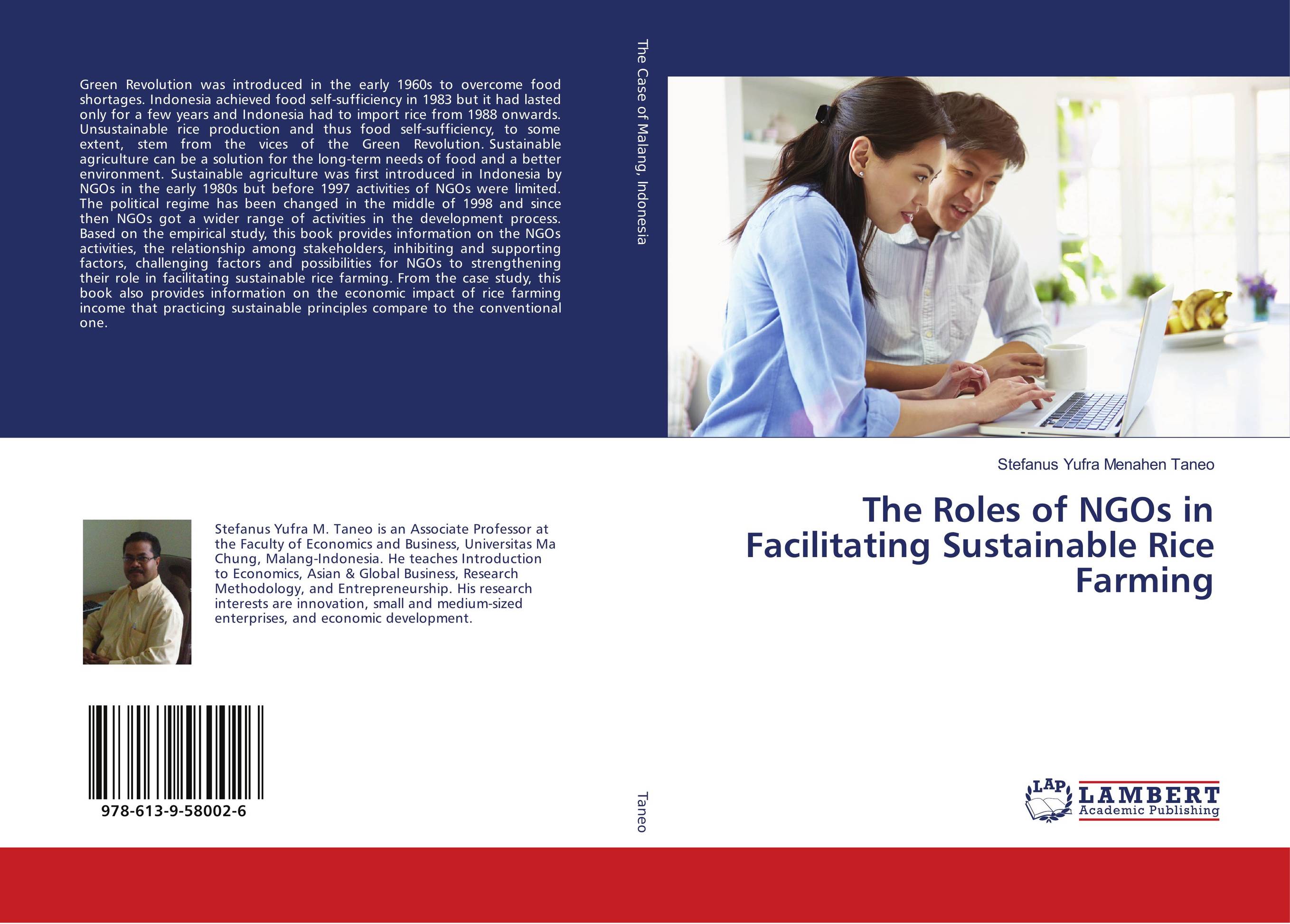| Поиск по каталогу |
|
(строгое соответствие)
|
- Профессиональная
- Научно-популярная
- Художественная
- Публицистика
- Детская
- Искусство
- Хобби, семья, дом
- Спорт
- Путеводители
- Блокноты, тетради, открытки
The Roles of NGOs in Facilitating Sustainable Rice Farming.

В наличии
| Местонахождение: Алматы | Состояние экземпляра: новый |

Бумажная
версия
версия
Автор: Stefanus Yufra Menahen Taneo
ISBN: 9786139580026
Год издания: 2018
Формат книги: 60×90/16 (145×215 мм)
Количество страниц: 184
Издательство: LAP LAMBERT Academic Publishing
Цена: 39713 тг
Положить в корзину
Позиции в рубрикаторе
Сферы деятельности:Код товара: 205165
| Способы доставки в город Алматы * комплектация (срок до отгрузки) не более 2 рабочих дней |
| Самовывоз из города Алматы (пункты самовывоза партнёра CDEK) |
| Курьерская доставка CDEK из города Москва |
| Доставка Почтой России из города Москва |
Аннотация: Green Revolution was introduced in the early 1960s to overcome food shortages. Indonesia achieved food self-sufficiency in 1983 but it had lasted only for a few years and Indonesia had to import rice from 1988 onwards. Unsustainable rice production and thus food self-sufficiency, to some extent, stem from the vices of the Green Revolution. Sustainable agriculture can be a solution for the long-term needs of food and a better environment. Sustainable agriculture was first introduced in Indonesia by NGOs in the early 1980s but before 1997 activities of NGOs were limited. The political regime has been changed in the middle of 1998 and since then NGOs got a wider range of activities in the development process. Based on the empirical study, this book provides information on the NGOs activities, the relationship among stakeholders, inhibiting and supporting factors, challenging factors and possibilities for NGOs to strengthening their role in facilitating sustainable rice farming. From the case study, this book also provides information on the economic impact of rice farming income that practicing sustainable principles compare to the conventional one.
Ключевые слова: Indonesia, NGOs, organic agriculture, Sustainable rice farming, farmers' income



